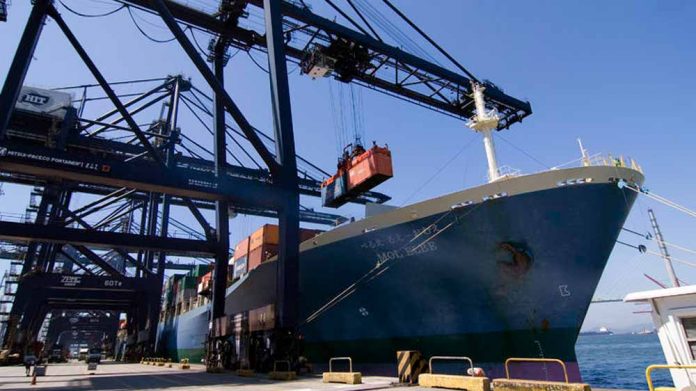KARACHI: Hutchison Ports Pakistan, the country’s first and only deep-water container terminal, has passed another milestone by licencing the country’s first female management engineering trainees to operate a remote-controlled ship to shore (STS) gantry cranes. Breaking new grounds in a male-dominated field, management engineer trainees Faryal Anwar (aged 24) and Umama Saleem (27) have finished training in the remote-controlled STS crane operations at the container port.
Faryal, who can operate both remote operating station (ROS) as well as the manual crane, said, “It’s a rigorous training process, including completing 100 hours as an observer, another 100 performing operations under supervision, and then 200 hours of operating machines independently with assistance available if required. The work is both physically and mentally challenging, but that makes me all the more determined to do my best. I’m proud to be working for an employer that values our dedication and hard-work higher than age and gender.”
Hutchison Ports Pakistan General Manager Captain Syed Rashid Jamil, said, “In terms of efficiency and productivity, we are implementing global shipping standards in Pakistan. And as a responsible and equal opportunity employer, we ensure that our policies and actions encourage and support women. Faryal and Umama are the first in Pakistan who have been licensed to receive formal training to operate cranes. We believe that these young engineers will become role models for all young women in Pakistan, especially those wanting to pursue careers hitherto accessible only to men.”
Faryal, has completed 142 hours, performed 646 supervised moves in total and has reached a rate of 23 moves per hour, whereas Umama has completed 162 hours, performed 516 supervised moves and has reached a rate of 29 moves per hour – outstanding performance for an STS crane trainee.
Hutchison Ports Pakistan is the first container terminal in Pakistan to introduce remote-controlled crane operations and is running its quayside operations fully on ROS mode. The technology offers more safety, reliability, efficiency, versatility, and cost-effectiveness. It will play an important role in maintaining the facility’s record-setting productivity, which is on par with the world’s highest performing container terminals.




